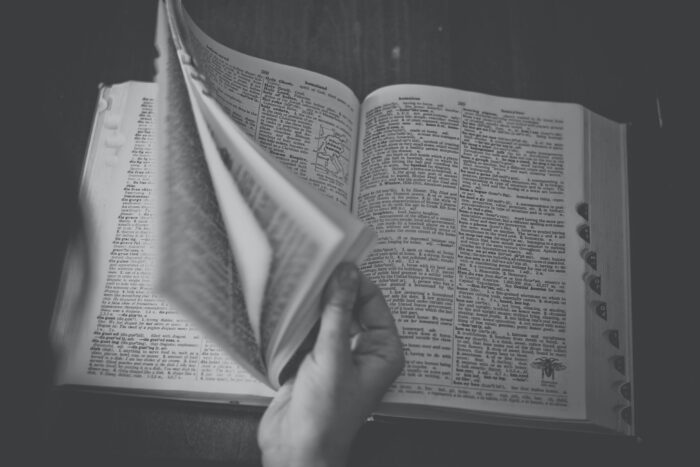tldr
i teach english. with the spread of the global pandemic, all my teaching is now done online, virtually. english is a viral language. it’s rather appropriate. whether you seek to learn the language, how to write it professionally or to better understand and appreciate its modern literature, i would be honored to help. i invite other teachers to make use of any of my materials at no charge, whether for use in college classes or private tutorials. there are various other subjects i teach, too. you’re welcome to explore my lessons. What you will find in this section is a combination of information for courses in progress and previously taught and some useful items for my students.
update
the global coronavirus pandemic has been (and at the time of writing continues to be) a truly staggering influence on the world of education. it has meant that my in-class teaching, of course, has completely stopped and that i have done more work online, especially individual supervision. some of the course information you see here will continue (for a while) to be listed as if it was still an in-class experience but i am gradually shifting all information to reflect a more generalized, flexible online instruction system. my actual teaching position is shifting so the course numbers on much of the information are no longer accurate but it will take some time to completely revise all the documents and i thought it would be better to leave them available in their old state rather than remove everything and republish only when they have been corrected, something that may be in-progress for many months. to all my students and colleagues, please do not hesitate to reach out if there is anything i can do to help throughout this desperate time.
subjects
for information about courses and materials in a particular subject area, select the discipline. while this is not exhaustive, i have a background teaching courses in arts and social sciences including english (creative writing, language and literature) and history. i also teach within the practical design disciplines including photography, graphic arts and woodworking.
for general information that applies to all courses and materials, scroll down. course outlines are available for all current and upcoming courses and many past courses. if there is information you can’t find, please let me know and i will do my best to provide it.

creative writing
- general
- poetry
- short fiction
- long fiction
- nonfiction
- theory
- translation
- independent study

english language
- basic skills
- beginner
- intermediate
- advanced
- books to read
- movies & tv to watch
- writing exercises
- reading & listening exercises

english literature
- poetry
- graphic literature
- literature of faith
- popular fiction
- literature in translation
- media as literature
- critical theory

history
- prehistory
- ancient
- modern
- critical theory
- future history
- social anthropology

woodworking
- basic skills
- hand tools
- tool building
- lumber & milling
- fine woodworking
- turning
- design
- 3d modeling
- cnc woodworking
- finishing

coding
- design
- swift
- ruby
- php
- node.js

photography
- night
- portraiture
- art
- nature
- basic skills
- history
Methodology
A Philosophy of Learning – It is important that everyone understands where we come from, either as students or teachers. While many instructors only share their teaching philosophy in academic circles or when they apply for a new position, I believe it is important to make my approach and understanding of learning available to my students and fellow instructors.
outlines
Course Guidelines – Rather than include this in each course-specific outline, this is the information on grading, requirements and policies. if you are a student in any of my courses, please assume that this is part of the syllabus.
It is useful to come back and check these documents (course guidelines and the specific outline for your course) for updates throughout the term. If there is a significant change, of course, it will be discussed in class and shared by email but it sometimes helps to refresh your memory. If you require a printed version of these documents, please let me know either in class or by email. I will not bring copies with me if you do not request them for the sake of many pages of wasted paper, ink and energy.
for specific course outlines, please select the relevant subject area. it is useful to note that, in some cases, outlines and course information were only relevant at the time but, as I have often been asked to support independent study in various locations, I continually update the old outlines (to a greater or lesser degree) to make them as useful as possible. You will find that, as courses are updated, I will only provide a tentative reading list for the moment until I’ve finished the update. If you’d like a copy of the interim version, let me know.
I do hope that I will have the opportunity to teach all of these courses again in the near future. If there are ones that are not currently offered in the department that you would find useful for your program, please feel free to let me know and I can pass that along. Some of these, of course, are currently offered by other instructors and this information certainly doesn’t apply to anything someone else is teaching. They are listed here by increasing course number, which is a reasonable approximation of the complexity of the discussion and evaluation expected. There is occasionally a mismatch between courses of class numbers — some terms are twelve weeks, others thirteen or even fourteen, depending on where and when the course was last taught. If you are looking at old or proposed outlines, you may need to take this into account — current courses, of course, are accurate for the current term.
class recordings
There’s nothing here at the moment but I am working on getting things into a fit state to share with the general public from my speaking engagements and small-group seminars. as i am sure you can understand, it takes a lot of paperwork to make educational recordings public. if there is something specific you are seeking, please ask.
Sharing
If you are also a teacher, you are welcome to any of the materials here to use with your classes. I would appreciate it if you would let me know you’re planning to use it and tell your students where it came from.
For any instructors browsing these course documents, it may be useful to note that the course number generally indicates the level of the course — courses beginning with 1 or 2 are introductory undergraduate, 3 is an upper-year course and 4 is a specialty undergraduate courses with more restricted entry requirements, 7 being courses for first-year graduate students and 8 being final-year graduate courses. Graduate courses in this system often double as course requirements for doctoral students with a student-specific increase in the individual submissions for completion of the course in line with the doctoral research that is being pursued. Some of these are multi-part courses, where the previous piece(s) is required before entry is possible into the next. While some colleges/universities label these as A/B/C/etc, these are usually indicated here by incremental course numbers (CW8043/4/5 in the case of the advanced graduate poetry composition seminar, with the exception being the only true two-part course that I typically teach, EN4920A/B).
Share this:
- Click to share on Twitter (Opens in new window)
- Click to share on Facebook (Opens in new window)
- Click to share on LinkedIn (Opens in new window)
- Click to share on Tumblr (Opens in new window)
- Click to share on Pinterest (Opens in new window)
- Click to share on Pocket (Opens in new window)
- Click to print (Opens in new window)